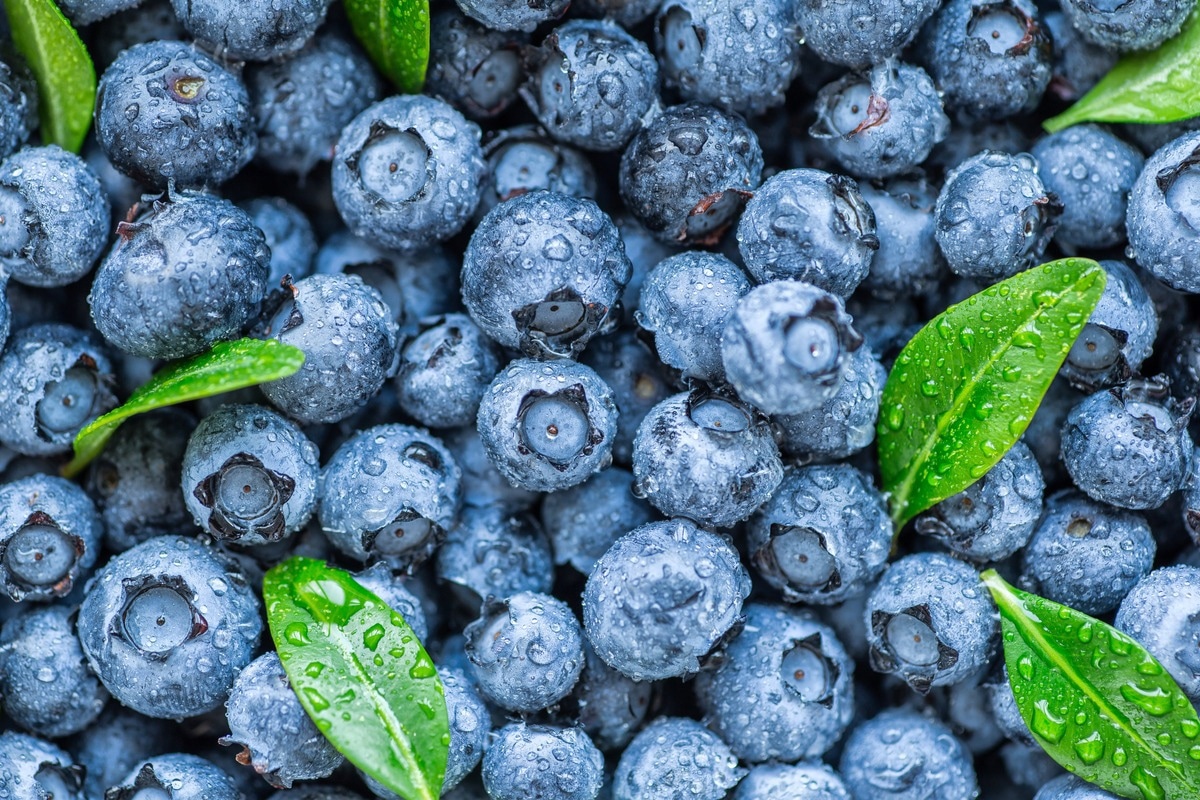Introduction
What are blueberries?
Nutritional profile
Functional ingredients
Specific health benefits
Conclusion
References
Further reading
As the saying goes, you are what you eat. A balanced diet is therefore essential for good health and should contain a variety of elements. These include starchy foods (potatoes, pasta, bread) protein-rich foods such as meat, fish, or plant-based sources, dairy or dairy substitutes, and various fruits and vegetables. This article discusses the health benefits of blueberries.
 Image Credit: Bukhta Yurii/Shutterstock
Image Credit: Bukhta Yurii/Shutterstock
What are blueberries?
Blueberries are the fruit of a perennial flowering plant of the genus Vaccinium, native to North America, closely related to bilberries, cranberries, and huckleberries. Usually prostrate shrubs, the plants can vary in height from 4 inches to 13 feet.
Blueberries have a long history of cultivation by First Nations peoples of Canada, stretching over a millennia before European colonization of continental America. Today, varieties of blueberry are commercially grown in locations such as Australia, New Zealand, and South America. The total global output of blueberries in 2016 was 629,720 tons.
Nutritional profile
A 100g serving of raw blueberries contains 57 calories, 0.3g of fat, 0.7g of protein, and 14g of carbohydrate, of which 10g is sugar, 2.4g is dietary fiber, and the rest are complex carbohydrates. 0g of the fat present is saturated, and blueberries contain no cholesterol.
Blueberries are a good source of essential vitamins and minerals. Vitamins provided by a 100g serving of blueberries include 11% DRV of vitamin C, 4% vitamin B6, 16% vitamin K, as well as vitamin E, folate, niacin, thiamine, and riboflavin. Essential minerals provided by blueberries include manganese (15%) copper (6%) iron (2%) phosphorus (2%) potassium (25) and zinc (1% of DRV.)
Blueberries also have a good amino acid profile and are a superior source of antioxidants, which provide several health benefits.
 Image Credit: Subbotina Anna/Shutterstock
Image Credit: Subbotina Anna/Shutterstock
Functional ingredients
Aside from being low in calories and cholesterol, which aids in weight loss and general health, the benefits of eating blueberries come from their functional ingredients.
Bioactive ingredients in blueberries include polyphenols, anthocyanins, and antioxidant properties. There have been many studies on the functional ingredient composition of different strains of blueberry, including Chinese and Brazilian derivatives, as well varieties from the USA and Canada. Different varieties were found to have differing functional ingredient profiles. Antioxidant profiles show large variation between different blueberry varieties.
One particularly interesting piece of research showed that juice from blueberries pretreated with a pulsed electric field contains higher levels of antioxidants than those not treated in this manner. Total antioxidant activity was increased by 31% with an increase in total phenolic and anthocyanin activity of 43% and 60% respectively.
Specific health benefits
Due to the nutritional profile and functional ingredients, the regular consumption of blueberries has been linked to several specific health benefits. These include:
Anticancer properties
Because of their anthocyanin and phenolic acid content, as well as antioxidant properties, blueberries have anticancer properties. Phenolic acids and anthocyanins lower proliferative, angiogenic transcript, and antiapoptotic levels and prevent carcinogenesis and lower the risk of cancer resurgence. Antioxidants lower the presence of free radicals and the risk of oxidative stress, which has been linked to DNA damage and tumor development.
Anti-obesity properties
Aside from being low in calories, blueberries have other anti-obesity properties linked to their functional ingredients. One study showed that anthocyanins in blueberries inhibit insulin signaling in adipocytes, inducing insulin glucose uptake and reducing glycerol release in adipocytes. Fatty acid synthase expression shows a significant reduction when wild blueberries are consumed. The blueberry extract shows potential as a therapeutic tool for obesity-related comorbidities.
Degenerative disease prevention
Daily consumption of blueberries can provide protection against degenerative diseases due to antioxidant activity, α-glucosidase inhibition, and antiproliferative properties. Research shows that anthocyanins (to which the antioxidant and antiproliferative properties are linked to) reduce reactive oxygen species, and xanthine oxidase-1 capacities, and strengthen heme oxygenase-1, superoxide dismutase, and malvidin capacities.
Anti-inflammatory properties
Consumption of wild blueberries has been shown to have anti-inflammatory effects. The phenolic acids, flavonoids, and procyanidins present have been linked to this health benefit. Anthocyanins help increase cytokines and help to reduce oxidative stress when consumed in large enough volumes. Blueberry extract has been identified as a novel therapeutic agent due to its antibacterial and anti-inflammatory properties.
Improved brain health
In animal studies, blueberries were shown to reduce oxidative stress and inflammation, as well as improve neuronal signaling and protect brain function. Blueberry anthocyanins have also been shown to improve brain function in older adults due to improving cognitive function, promoting activation and perfusion in the brain. Memory function mediation, glucose disposal, and delaying neurodegeneration are also ways blueberries improve brain health.
Improved vision
Regular consumption of blueberries can also have positive effects on eye health. Anthocyanins in blueberries contribute to this, in particular cyanidin-3 glucoside, and studies have shown that they hasten retinal recovery after photobleaching. Polyphenols also provide protection against light-induced retinal damage.
Heart health
Blueberries contain no saturated fat or cholesterol, providing benefits to heart health. Additionally, the antioxidant levels of blueberries protect against LDL cholesterol oxidation. In one study, it was found that a 50g serving reduced LDL oxidation in patients by 27% over eight weeks. The study also noted a 4-6% reduction in blood pressure in patients.
 Image Credit: JoannaTkaczuk/Shutterstock
Image Credit: JoannaTkaczuk/Shutterstock
Conclusion
Due to their superior nutritional profile and potential health benefits, blueberries should be consumed regularly as part of a balanced diet. This is especially important in aging patients. However, patients should talk to their doctor or a medical professional before including blueberry extracts in their diet.
References
Further Reading
Last Updated: Jun 28, 2022